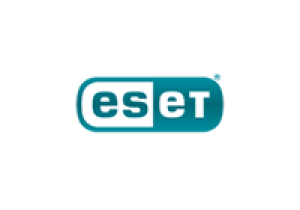A Mindset Change as One of the Bulgarian Egovernment's Challenges

Since his graduation from Technical University of Sofia, Krasimir Simonski has participated in a number of Bulgarian and international projects in the field of information and communication technologies, electronic education and dissemination of broadband internet access across the Balkan and the CEE countries. In 2013 he was appointed as Deputy Chairperson to the newly established Bulgarian SEGA (State eGovernment Agency).
What is the current state of the eGovernment in Bulgaria and what are the actual challenges?
In August 2017, in order to ensure compliance with the ‘once-only’ principle and the Directive on the Re-use of public sector information, SEGA initiated a process for amending more than 150 acts. The initiative aims to reduce the administrative burden for citizens and businesses, to stop the use of paper documents certifying data and information already available in the administrative registers and to oblige the administrations to exchange data and information electronically.
The main recent developments are connected with the fulfillment of the eGovernment Roadmap 2016-2020. The first stage is a pilot of a remote electronic voting system. As well as the upgrade of the National portal for spatial data (INSPIRE) The development of a state-owned Private Hybrid Cloud and a secure internet node for public eGovernment services is undergoing the process.
The challenges are many, and perhaps, first of all, we need to mention the change of mindset. Since, fortunately, recently we have a very supportive environment for e-Government – we have clear strategic priorities; we have an amended e-Government Act that clearly sets out the objectives and the way to achieve these objectives. So perhaps the key challenge is changing the way of thinking within the administrations, businesses and citizens.
Can you approximate the trend of the eGovernment since your involvement in the area?
The State e-Government Agency (SEGA) was established and has been functioning from 1 December 2016 in compliance with the Electronic Government Act. It was the first time that a separate structure with powers in the field of e-government was set up in the country, empowered to issue statutory provisions and guidelines applicable to all administrations. The e-government policy management, coordination, control and implementation are centralized and have been recognized as a national priority for the first time.
The opportunity for retaining personal data and information for citizens, stored in the registers available within administrations has been provided electronically (e.g. RegiX) between administrations. Thus, the necessity for providing paper documents by citizens for certifying such data and information in the process of administrative service has been removed. In addition, access for real-time electronic check of available personal data stored in administrative registers has been provided to individuals. The opportunities for businesses to use some digital public service, such as starting their own business, VAT registration, provision and declaration of staff data and information, obtaining licenses, provision of financial information for the company, etc., are available since March 2017.
How do you view further development of eGovernment and other e-related phenomena from the national as well as the international perspective?
E-government has become an integral part of public sector transformation. Information and communication technology (ICT) has helped to deliver more modern services for citizens and businesses, stimulate the Information Society and emerging new economy, drive public sector transformation and help governments prepare for future pressure on public administrations. In the past decade, e-government has developed tremendously from being an issue in and of itself to becoming a cross-cutting transformational issue supporting governments’ abilities to deliver on promises. It is now important for governments to look at their achievements, and identify and focus on the medium- and long-term issues that will emerge in the coming decade.
When talking about e-government it is absolutely essential to continue the conversation about cybersecurity issues. It’s a must and it’s by all means a challenge. The handling of data, for example, is already an area of intense scrutiny. The interests of businesses to rapidly expand need to be balanced against the interests of consumers and society at large during this digital transformation. It is here that regulation could disrupt or halt these new businesses and business models.
The European Commission predicts that a digital single market could create up 3.8 million jobs within Europe. Simpler access to digital goods and services would benefit businesses and consumers throughout Europe. For this to become a reality, improvements in data and information security are needed, as well as a uniform body of law applicable to all countries. Only then could individuals be protected from the various threats posed by the digital economy. This also applies to cloud-based services that need to be standardized in all countries.




















